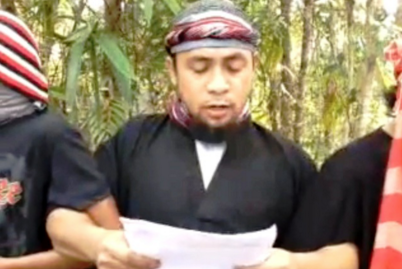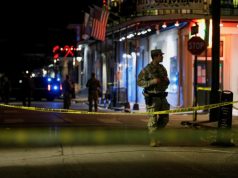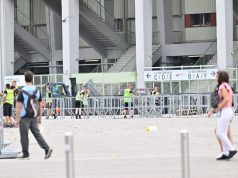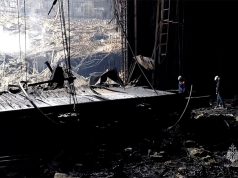
MANILA – The Islamic State of Iraq and Syria (ISIS) has encouraged foreign jihadists to go to the Philippines, which it is building up into a regional hub for the terrorist group as the battle space shrinks in the Middle East, according to a Singapore-based security expert.
An indicator of this influx of foreign fighters is that nearly a third of the first casualties from the Maute Group-led terrorists whom government forces clashed with turned out to be foreigners, he said.
The “emerging nucleus” of IS in the Philippines must be decisively contained and isolated. Otherwise, warned Rohan Gunaratna, a security expert at Singapore’s S. Rajaratnam School of International Studies, “it will pose a threat to the entire region.”
“IS has provided funds. IS has encouraged foreign fighters to travel to Philippines. For instance, in January, Abu Naila from Belize was killed. Last year, Qatab from Morocco was killed. In the first 33 fighters killed in Marawi, nine of them were foreign fighters from Malaysia, Indonesia, India, Chechnya,” Gunaratna told Bloomberg TV Philippines in an interview Monday.
“So what we are seeing is that [the] Philippines is also emerging as a foreign fighter base because ISIS is telling people, look, we’re not coming to Syria and Iraq. You go to the Philippines,” added Gunaratna in the exchange with Bloomberg TV Philippines anchor Roby Alampay.
IS, he added, “is encouraging the creation of many regional hubs, and the Philippines is one of them.”
Reuters quoted Philippine intelligence sources as saying that of the 400-500 fighters who laid siege to Marawi City on May 23, as many as 40 had recently come from overseas, including from countries in the Middle East.
The Reuters source said they included Indonesians, Malaysians, at least one Pakistani, a Saudi, a Chechen, a Yemeni, an Indian, a Moroccan and one man with a Turkish passport.
Gunaratna explained to Bloomberg TV Philippines why the Philippine defense and military hierarchy had first categorically denied any IS role in the Marawi rampage, describing them as homegrown terrorists seeking to make their mark to get ISIS recognition and funding.
“In the mind of the Filipino military, law enforcement and intelligence officers,” Arabs from Iraq and Syria must physically come to the country “for there to be ISIS presence in the Philippines.”
Gunaratna said, however, “that’s not the way it works. The way it works is that local groups say, ‘now we have joined IS.’ IS recognizes them. Then they use IS flag. They use IS slogans, and they conduct IS-style attacks. That is how IS is building links with groups in parts of Asia, Africa, and the Middle East. In the Philippines, it is no exception.”
The groups, he added, “are now following the broad guidelines issued by IS to establish IS-centric presence in the Philippines.”
Gunaratna traced the origins of the Maute group, which government said had fielded at least 240 well-armed members in the May 23 rampage in Marawi.
The Maute Group was formed as Khilafah Islamiyah Mindanao and later, it evolved into Tauhid Wal Jamaat, said Gunaratna. “The group was deeply influenced by developments in Iraq and Syria. And now it has pledged allegiance to Abu Bakr Al-Baghdadi, the leader of the Islamic State and it is carrying out the mandate of IS. It has also united together with Isnilon Hapilon who has been appointed as the IS leader in the Philippines. So we are seeing that there is collaboration between these groups. And in Marawi, Hapilon moved himself to Marawi and currently, there is a huge battle in order to kill or capture Hapilon.”
The IS, Gunaratna said, has “co-opted capable groups” like the Abu Sayyaf group-Basilan faction led by Isnilon Hapilon, whom he described as “a very capable leader.”
Besides that, he said, the Maute group, also known as the Islamic State Lanao, “is a very competent terrorist and a guerilla group that has fought back and forth with the Armed Forces of the Philipppines. So these groups have the capacity to destroy, to conduct operations.”
Nonetheless, he noted that no one in Marawi supported this group. “Even though Marawi is 96% Muslim, they rejected IS, so certainly, it is important for the military to work closely with the Muslim community to build strong partnerships with them and to contain and isolate and eliminate this ISIS nucleus that is emerging in the Philippines.”
Otherwise, he warned, “it will pose a threat to the entire region.”









